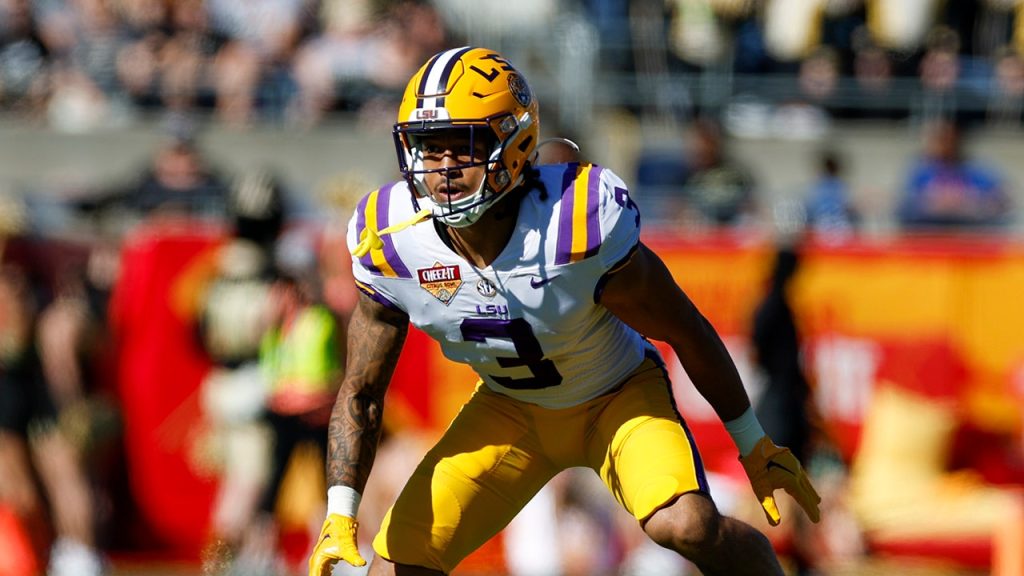From NFL Prospect to Wheelchair-Bound: The Greg Brooks Jr. Story
Just a year and a half ago, Greg Brooks Jr. stood on the precipice of a promising NFL career, captaining the LSU Tigers football team. Today, his reality is starkly different. Confined to a wheelchair and struggling to speak, Brooks’s life took a devastating turn after a series of medical missteps and alleged negligence by his university and medical providers. His story is one of athletic promise shattered, a family’s unwavering support, and a legal battle for justice and accountability.
Brooks’s ordeal began in September 2023 when he experienced dizziness and vomiting during practice. The LSU medical team initially diagnosed him with vertigo, a relatively common ailment. However, Brooks’s symptoms persisted and worsened over the following weeks. Disturbingly, despite his deteriorating condition, the coaching staff allegedly pressured him to continue playing, threatening to remove him from the starting lineup if he didn’t. This alleged disregard for his health underscores the intense pressure athletes sometimes face to prioritize performance over their well-being.
It wasn’t until over a month after his initial symptoms that Brooks finally received a correct diagnosis: a brain tumor requiring immediate surgery. The surgery itself, however, proved to be a turning point for the worse. Brooks suffered multiple strokes during the procedure, leaving him with debilitating physical and cognitive impairments. He now faces the arduous task of relearning basic life skills, including eating, walking, and writing.
The Brooks family believes that the delayed diagnosis, the alleged pressure to play despite his illness, and the complications during surgery were all preventable. They have filed a lawsuit against LSU and Our Lady of the Lake Hospital, alleging negligence and malpractice. The suit claims that LSU failed to properly address Brooks’s initial symptoms and that the medical professionals who performed the surgery were not qualified to do so. Furthermore, the family alleges that a donation fund established by LSU for Brooks’s care was never properly disbursed.
The lawsuit paints a picture of a young athlete caught in a system that prioritized athletic performance over his health. The alleged pressure from the coaching staff to continue playing despite his worsening symptoms, combined with the delayed diagnosis and subsequent surgical complications, raises serious questions about the duty of care owed to student-athletes. The Brooks family contends that LSU’s actions and inactions directly contributed to their son’s devastating condition and that he will require lifelong care as a result. The lawsuit seeks to hold the university and the hospital accountable for their alleged negligence and to ensure that Brooks receives the necessary support for his long-term recovery.
Adding to the family’s anguish is the perceived lack of support from LSU, particularly head coach Brian Kelly. Greg Brooks Sr., Brooks’s father, has expressed his disappointment and frustration at not hearing from Kelly since his son’s diagnosis. He believes that the coach’s silence in the face of such a life-altering event is a betrayal of the trust and care expected within a collegiate athletic program. The lack of communication, coupled with the alleged pressure to play despite being ill, highlights the potential disconnect between the human element and the high-stakes world of college sports.
The case of Greg Brooks Jr. serves as a stark reminder of the vulnerabilities of student-athletes and the potential consequences of prioritizing athletic performance over their health and well-being. The ongoing legal battle will determine whether LSU and Our Lady of the Lake Hospital are held accountable for their alleged negligence. More importantly, Brooks’s story underscores the need for a greater emphasis on athlete safety and a culture within collegiate sports that prioritizes the well-being of student-athletes above all else. His journey from promising NFL prospect to a life irrevocably altered by medical adversity serves as a powerful testament to the importance of advocating for one’s health and the pursuit of justice in the face of alleged negligence. The hope remains that his story will lead to meaningful changes within collegiate athletic programs, ensuring that the health and well-being of student-athletes are always the top priority.

